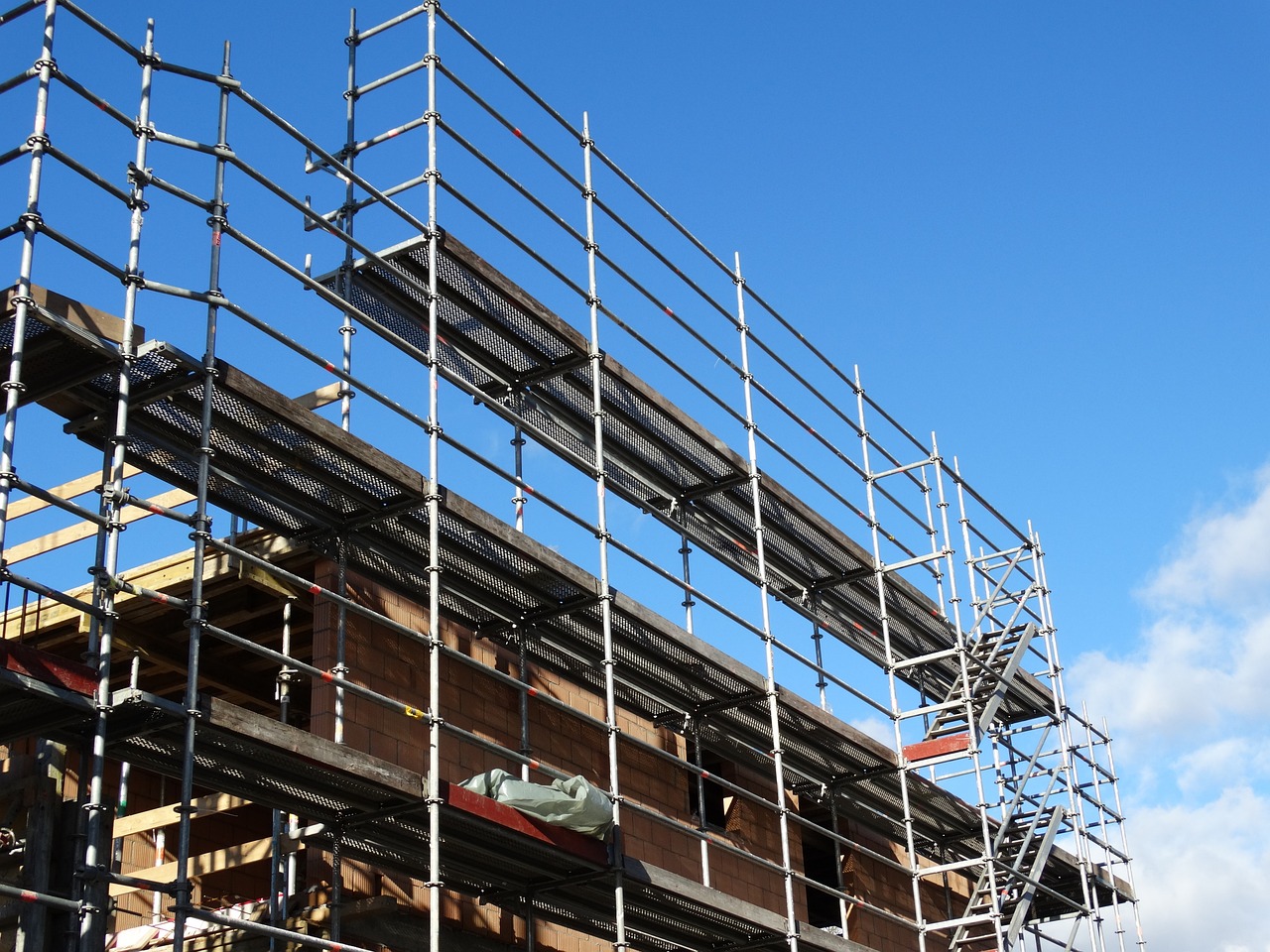New mortgage guarantee scheme to increase home ownership

In a significant move to bolster homeownership, the UK government has unveiled a permanent, comprehensive Mortgage Guarantee Scheme aimed at assisting first-time buyers. This initiative is part of the broader ‘Plan for Change’ strategy, which seeks to deliver 1.5 million new homes and stimulate economic growth by reducing bureaucratic hurdles for builders and prospective homeowners.
The new scheme is designed to open the door to homeownership for young families and hardworking renters who have been historically locked out of the property market. Recent data indicates that the number of first-time buyers has plummeted to a ten-year low, with today’s under-30s being less than half as likely to own a home compared to those at the same age in 1990.
City Minister Emma Reynolds emphasised the government’s commitment to reversing this trend, stating: “Simplifying responsible lending rules and implementing a permanent mortgage guarantee scheme demonstrates our dedication to making the dream of homeownership a reality.” Housing Minister Matthew Pennycook echoed this sentiment, highlighting the necessity of addressing affordability challenges to prevent a generation from being excluded from owning homes.
In tandem with the Mortgage Guarantee Scheme, the government is also focusing on modernising the home buying process. Plans are underway to streamline and digitise property transactions, aiming to reduce the current average delay of nearly five months and decrease the one in three transactions that fall through, costing approximately £400 million annually.
These initiatives have been well-received within the housebuilding industry. Major developers, including Taylor Wimpey, have praised the government’s proactive approach, particularly the recent overhaul of national planning policy, which is expected to accelerate the construction of homes, factories, and infrastructure. However, industry leaders caution that rising construction costs and the need for increased funding for affordable housing remain pressing concerns that must be addressed to meet the ambitious target of 1.5 million new homes by 2029.
As the government continues to roll out these reforms, further details on the Mortgage Guarantee Scheme and other housing initiatives are anticipated. These efforts collectively aim to revitalise the housing market, support first-time buyers, and stimulate growth within the housebuilding sector.
HBF expand women into home building programme
The Home Builders Federation (HBF) has announced the reopening of its ‘Women into Home Building’ programme, offering a record number of placements in its latest cohort. This initiative, launched in January 2023, aims to address the significant gender imbalance in the construction industry by providing women with training and hands-on experience in site management roles.
In partnership with 11 prominent home builders, including Bellway, Gleeson, Hill Group, Lovell Homes, Northstone, Places for People, Prospect Homes, St Modwen Homes, Tilia Homes, and Vistry Group, the programme has expanded its reach significantly. The current cohort offers over 30 training, support, and work placements, marking a substantial increase from previous years.
Since its inception, the ‘Women into Home Building’ programme has engaged with 160 women, providing in-depth support to 69 participants and enabling 47 to complete the comprehensive three-week scheme. This initiative has been instrumental in equipping women with the necessary skills and experience to pursue careers in site management, a field where women currently represent just 4% of the workforce.
The programme comprises a week of fully-funded online insight and development sessions, followed by a two-week onsite work placement. Participants receive one-to-one career coaching and support from Women into Construction, an independent not-for-profit organisation dedicated to promoting gender equality in the sector.
Andy Borland, Construction Director at Bellway Homes (Scotland West), highlighted the positive impact of such initiatives, stating: “At long last, it feels as if we are starting to see changes within the industry, and the work companies are putting into place around diversity is beginning to pay off.”
The ‘Women into Home Building’ programme is now open to women across England, Scotland, and Wales. Placements are available on building sites in local areas, providing accessible opportunities for women to gain valuable industry experience.
Limits are never fun. That’s why we made Housebuilder Pro UNLIMITED
Find out more in a guided demo
Scottish Housing Market Dips
Recent data from the Scottish Government reveals a significant decline in housebuilding activity across Scotland. In the year leading up to 30 September 2024, a total of 19,827 homes were completed, marking a 10% decrease from the previous year. Additionally, 14,768 new homes were started during this period, representing a 12% drop.
This downturn is evident in both the private and social housing sectors. Excluding the pandemic-affected year of 2020, private sector completions have reached their lowest point since 2018, while social housing completions are at their lowest since 2017.
Callum Chomczuk, the national director at the Chartered Institute of Housing (CIH) Scotland, attributes this decline to escalating construction costs and insufficient funding for Scotland’s affordable housing supply programme. He emphasised that these figures underscore the necessity for a sustained, cross-party commitment to funding and constructing social and affordable housing, ensuring that everyone has access to a safe and affordable home.
The housing sector’s challenges have prompted declarations of a ‘housing emergency’ by the Scottish Parliament and 13 local councils. This follows a £200 million reduction in Scotland’s affordable housing budget for the current year. Although the government recently reinstated this funding, bringing the affordable housing budget to £768 million for 2025/26, it remains lower in real terms compared to the 2023/24 budget.
These developments highlight the pressing need for long-term strategies and investments to revitalise Scotland’s housebuilding sector and address the ongoing housing crisis.
Government release UK house price index for December 2024
In December 2024, the UK housing market experienced a modest shift, with average house prices decreasing by 0.1% compared to November 2024. Despite this slight monthly decline, the annual growth rate stood at 4.6%, bringing the average property value to £268,000.
Regional Insights:
- England: House prices remained stable month-on-month, with an annual increase of 4.3%, setting the average property value at £291,000. The East of England saw the most significant monthly rise of 0.6%, while Yorkshire and the Humber experienced the largest monthly decline of 0.8%. Notably, the North East recorded the highest annual growth at 6.7%, whereas London reported no annual change in house prices.
- Scotland, Wales, and Northern Ireland: Specific data for these regions were not detailed in the December 2024 report. For comprehensive statistics, refer to the full UK House Price Index report.
Property Types:
- Detached Homes: Average price of £472,000, reflecting a 4.7% annual increase.
- Semi-Detached Homes: Priced at £286,000, up by 5.4% over the year.
- Terraced Houses: Average value of £240,000, marking a 4.6% rise annually.
- Flats/Maisonettes: At £225,000, these properties saw a modest annual growth of 1.6%.
Market Dynamics:
The housing market’s performance in December 2024 can be attributed to several factors:
- Economic Conditions: Reduced borrowing costs have made mortgages more accessible, encouraging property purchases.
- Policy Changes: Anticipation of a tax increase in April prompted buyers to expedite n January 2025, the UK’s inflation rate experienced an unexpected rise to 3%, up from 2.5% in December 2024, surpassing economists’ forecasts of a 2.8% increase. This surge, driven by higher costs in food, private school fees, and transportation, has intensified the financial strain on households and reduced the likelihood of imminent interest rate cuts by the Bank of England.
- The Bank of England had previously lowered interest rates to 4.5% earlier in the year. However, with inflationary pressures mounting, further aggressive cuts are now deemed unlikely. City investors have adjusted the probability of a March rate cut to 15%, down from 24%.
Improve customer journeys with Housebuilder Pro’s customer portal
Provide the best service to your customers yet, find out more by emailing info@housebuilderpro.co.uk
Inflation Rises to 3%
The unexpected rise in UK inflation to 3% in January 2025 is set to have a significant impact on the housebuilding industry, particularly in terms of material costs and mortgage affordability. With inflation climbing from 2.5% in December 2024, driven by higher food, transport, and private school fees, housebuilders, developers, and homebuyers alike are facing fresh economic pressures.
Rising Inflation = Rising Material Costs
Higher inflation means increased costs for raw materials such as timber, steel, and concrete—critical components in the housebuilding sector. Many of these materials are already affected by global supply chain disruptions and higher energy costs, and inflation only adds further price volatility. Developers may need to reassess budgets and project timelines, while smaller firms could struggle to absorb rising costs without passing them onto buyers.
Impact on Mortgage Rates
For homebuyers, inflation makes interest rate cuts less likely, keeping mortgage costs high. The Bank of England had been expected to cut interest rates in early 2025, but with inflation still rising, financial markets now see just a 15% chance of a rate cut in March, down from 24% previously. Higher mortgage rates mean affordability challenges for first-time buyers and could cool the housing market, affecting demand for new-builds.
What This Means for the Industry
- Housebuilders: Higher material costs and slowing demand could put pressure on margins. Developers may delay projects or adjust pricing strategies.
- Buyers: Rising mortgage rates and persistent inflation mean homeownership remains expensive, particularly for first-time buyers.
- Government & Policy: Policymakers may need to reassess housing incentives to maintain new-build sales and affordability.
While some analysts believe this inflation spike is temporary, the short-term impact on construction costs and borrowing remains a concern. The industry will need to adapt to inflation-driven pressures, balancing costs while keeping homes within reach of buyers.





